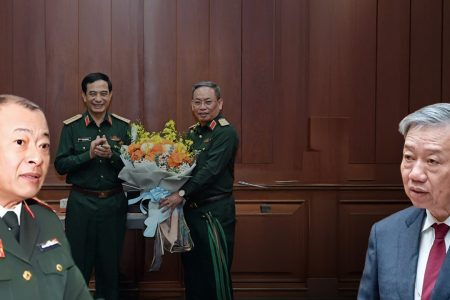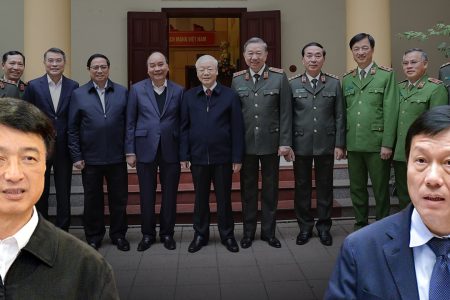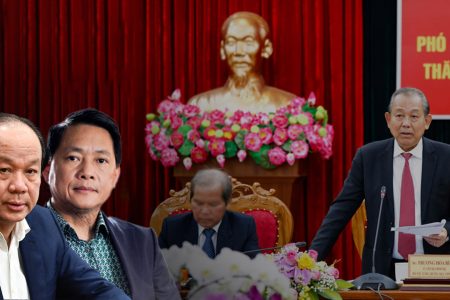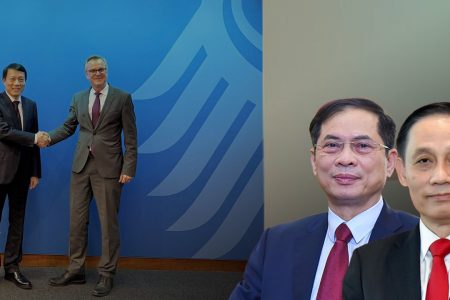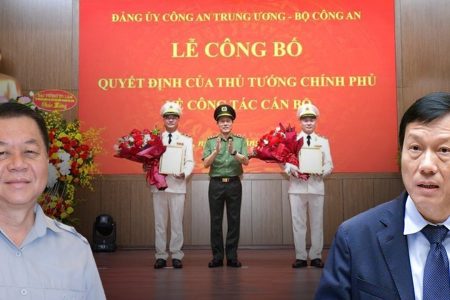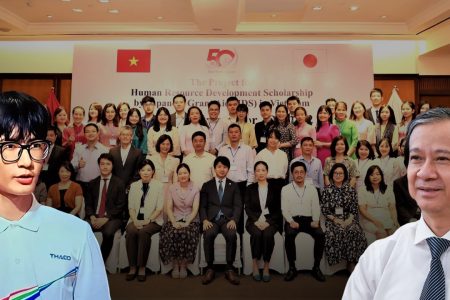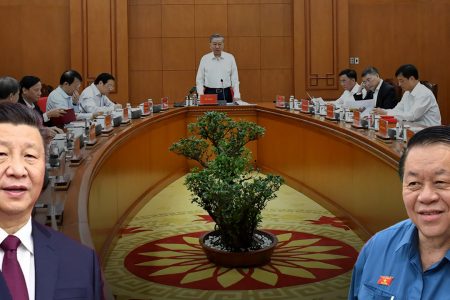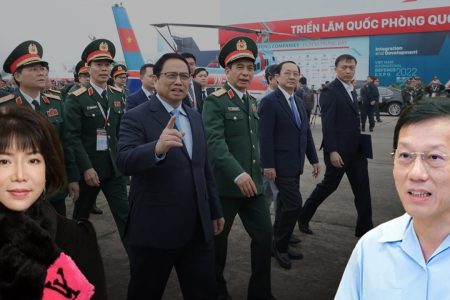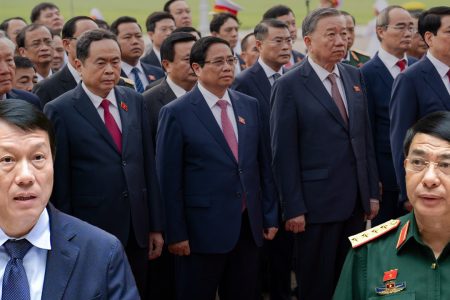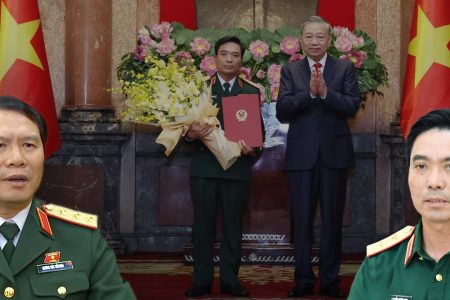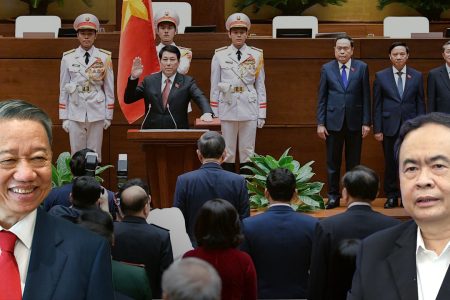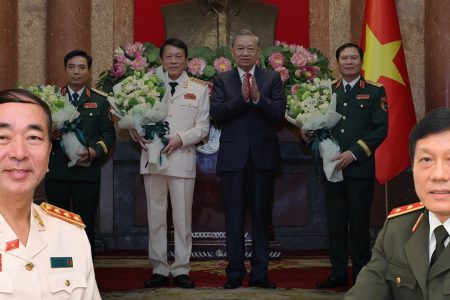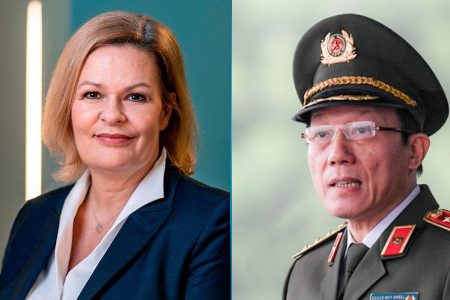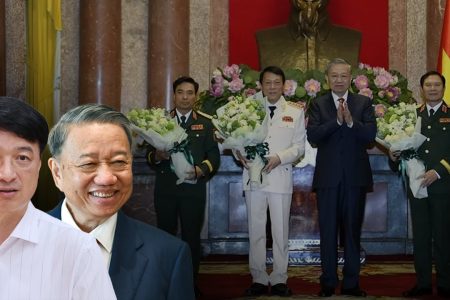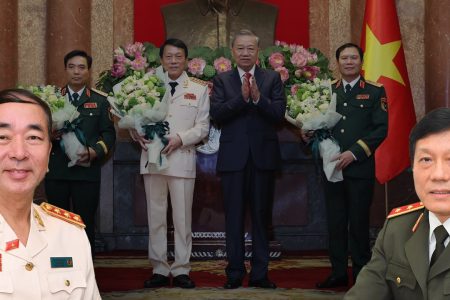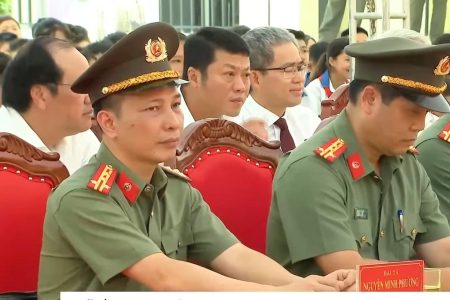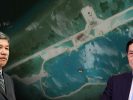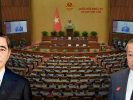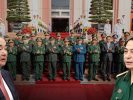
The Vietnamese government plans to force social media users to declare their personal identification, but an information technology expert says this requirement cannot be fulfilled.
On the morning of May 8, during an explanation session of the Judiciary Committee regarding the observance of the law on human trafficking prevention and combat, and authentication of accounts on social networks to limit online fraud, Deputy Minister Ministry of Information and Communications Nguyen Thanh Lam said the government will issue a decree on the management, provision and use of Internet services and online information by the end of 2023 with very important changes.
Specifically, the government will require all social media account holders who are individuals or organizations to perform identification. This applies to foreign social networks such as Facebook, YouTube, TikTok, etc.
“With unidentified social network accounts, they will be fought, blocked and handled with different degrees,” Deputy Minister Lam was quoted by Tuoi Tre online newspaper during the meeting.
Experts say not possible
Information technology expert Hoang Ngoc Dieu from Australia said that the Vietnamese government cannot enforce the requirement for personal identification unless there is the consent of social network operators.
He told RFA on May 12:
“If Vietnam wants to impose unilaterally, it is impossible because the state cannot control social networks! Technically, they won’t be able to do that until they have the full system.
For example, now there are 60 million Vietnamese people using Facebook, how does the Vietnamese government know who is using what account to force them to use their real identity?”
He thinks this is just a trick to scare for fun, but technically and legally impossible. He asked the question:
“How does the government have an entire team to control and hunt down 60 million Facebook users?”
Phillip, a security expert with more than 10 years of experience in security training for many NGOs inside and outside Vietnam. He told RFA on May 12:
“Technically, it is not possible to require identities for social media accounts. If desired, users can completely change IP and create a Facebook account in another country.
Not to mention that the Vietnamese government doesn’t really control the servers of international companies like Google and Meta.”
He thinks that maybe the Vietnamese government is seeing that the identification for telecommunications accounts (which need a citizen ID to buy a phone sim) that they are doing is making good progress, so they think it can be applied with social media accounts.
In addition, the fact that social networks such as Facebook, YouTube and Zalo also force users to register with their real identities for support when there are problems related to accounts, is also a point that makes the government think that identifying for social networking accounts is possible.
What do activists say?
Phil Robertson, deputy director of Human Rights Watch’s Asia Division, told RFA via email on May 12:
“The Vietnamese government is pursuing a multi-pronged effort to control whatever Vietnamese people express on the Internet as part of a broader effort to censor anything critical of the government.”
This mandatory identification requirement is clearly part of that effort, he said, and no one should be fooled by the Vietnamese government’s claims that the measure is intended to curb online crime. He argued that this request violates the right to freedom of expression online:
“By forcing social network users to reveal their real personal identification, Vietnamese officials invade their privacy and make it easier to intimidate and abuse them because they can clearly identify who is posting critical content about the government.”
According to him, this method of intimidation will force social media users to self-censor to avoid trouble with the government.
“Bit by bit, Vietnam is trying to impose the same kind of controls on the Internet that we see in China, which goes to show the similarity in tactics used by the authoritarian, communist Vietnamese and Chinese governments.”
Speaking under the condition of anonymity for security reasons, an activist in Hanoi said there are now “anonymous users for the purpose of fraud, infringing upon the interests of the state, organizations and individuals, violate the law but the authorities cannot determine to handle.
On the contrary, there are also people who only use social networks to voice their opinions or criticize society but are criminally prosecuted of abusing freedom of speech to infringe upon the interests of the state organizations and individuals.”
Therefore, according to him, the requirement to identify social network users has a positive side, which is to limit the use of anonymity to violate the law, but it will limit the freedom of speech of citizens.
Former military intelligence officer Vu Minh Tri also said that the request for personal identification at the discretion of the government more or less infringes on the freedom of citizens.
However, according to him, when the State uses an army of tens of thousands of commentators using virtual accounts to attack reviewers, the request for personal identification can be a “double-edged sword” for the regime.
“In the context that the government and its people still often do illegitimate things, personal identification will definitely cause ‘his stick to hit his back’.
Even in state newspapers, there are many articles without the author’s real name,” he said.
According to him, requiring identification on social networks will increase publicity and transparency while these are the most dangerous enemies of dictatorships.
On social networks, there are constantly appearing video clips taken, posted, shared by people … about the wrong words and deeds of civil servants, officials and people of the armed forces, he cited.
According to this activist, once the door of openness and transparency has been opened, it will be difficult to close again and freedom and democracy is an irresistible trend. In addition, openness and transparency will help people to be more free and more confident.
Will personal identification limit online scams?
Mr. Vu Minh Tri said that many people are deceived because of ignorance and online fraud is just one of many forms of fraud.
“In recent times, tens of thousands of people have lost thousands, tens of thousands of billions of dong due to corporate bonds, not because of online fraud, not because of lack of personal identification,” he commented.
Expert Hoang Ngoc Dieu said that if the government really wants to protect Vietnamese people from dangers on social networks, they must set specific criteria to convince Vietnamese people in a transparent manner.
“If they want to limit online fraud, they must take measures on applying science and technology to computer applications and they have educational programs on fraud so that people can specifically prevent fraud but cannot apply legitimate declaration to deal with this.”
He argued:
“Scammers are a very small minority, so why impose a compliant majority to capture scammers?! That is a very wrong measure.
For example, here in Australia, online fraud is rife, but the Australian Government has never had a policy to force people to declare their real names on social networks.
On the contrary, they also advise that you should not do this or that to protect yourself. The most important thing is that you have to protect your assets and personal identity, absolutely do not reveal it to anyone even to the government.”
Security expert Phillip emphasized, the requirement of personal identification underpins the Law on Cybersecurity and this is a step in the policy to transform the way people are managed and controlled, which the Vietnamese Government says is ” digital conversion.”
Expert Hoang Ngoc Dieu, also a human rights activist, forecast:
“The policies of the Vietnamese communist government deliberately suppressing and squeezing the people, the more they do so, the more counterproductive it becomes. It only helps one thing, that protecting the regime never achieves its purpose.”
According to Freedom House’s latest report published in October 2022, Vietnam is ranked in the group of five countries with the lowest Internet freedom in the world, just ahead of Cuba, Iran, Myanmar and China. For seven consecutive years, Vietnam is said to have no Internet freedom.
The ranking position of Vietnam is based on criteria such as blocking of websites, the operation of pro-government commentators, the issuance of new policies to censor, arrest and imprison users, the use of violence against users, and technical attack measures.
Thoibao.de (Translated)



